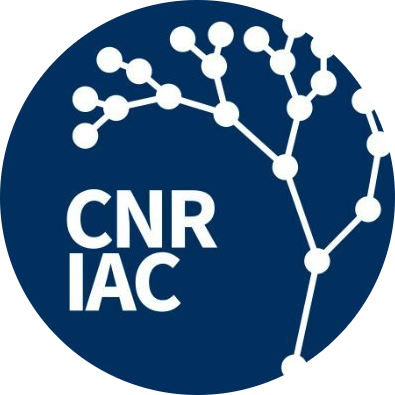Ph.D. in
High Performance
Scientific Computing
Scientific and technological innovation,
between university and industry
The Programme
The Ph.D. Programme in High Performance Scientific Computing (HPSC) trains experts in high performance scientific computing. It is an interdisciplinary and industry-driven program, developed in collaboration with eight university departments, national research centers, and leading technology companies.


Interdisciplinary research,
real-world impact
Every Ph.D. project is built on academic and industrial collaboration. Doctoral candidates work with companies like S.I.T. – Sordina IORT Technologies and national research institutions, gaining access to advanced laboratories and contributing to HPC solutions in medicine, physics, engineering, and environmental science.
Ready to lead the future
Our doctoral graduates pursue careers in academia, high-tech industries, computing centers, and fields like artificial intelligence, big data, and simulation. Their multidisciplinary profile opens doors in health, energy, climate, aerospace, and beyond.
A network of excellence
The HPSC Ph.D. programme is built on a strong synergy between academia, industry, and research institutions. Each project involves multiple departments and external partners, promoting real-world applications and the transfer of HPC technologies.
Collaborating institutions:
Research Areas
The programme provides students with cutting-edge training and research experience in a wide range of interdisciplinary fields, including: HPC, AI and data science, computational engineering, life sciences, and environmental modelling, and more.
Computational Mathematics and Algorithm Development
Focus on the design of advanced mathematical models and optimised algorithms for HPC environments. Topics include numerical methods for parallel computing, optimisation techniques, and simulation methods applicable to various scientific domains. Research leverages the expertise of the Mathematics and Computer Science departments in areas such as numerical linear algebra, finite element methods, reduced models, and optimisation.
HPC Software and Systems
Development of scalable, efficient, and robust HPC software systems. This research area covers improvements in supercomputing architecture, parallel computing, and operating systems, aiming to enhance computational efficiency and energy sustainability. It draws on expertise from the Computer Science and Information Engineering departments.
Data Science and Big Data Analytics
Design of new HPC methods and solutions for managing, processing, and analysing large datasets in scientific research. Topics include parallel algorithms for machine learning, statistical methods, and data visualisation for extracting insights from complex data across multiple domains.
Computational Engineering
Application of HPC to complex engineering problems, including but not limited to fluid dynamics, energy network and device optimisation, materials science, computational electronics, intelligent systems design, structural analysis, biomedical engineering, computational neuroscience, neuromorphic systems, and financial engineering. This area supports the development of innovative simulation methodologies with potential impacts in biomedical technologies, aerospace, civil and energy engineering, and more.
Physics and Quantum Computing
Use of HPC and distributed computing systems to analyse massive datasets (exa-bytes) in experimental and observational physics. Research includes development of compute accelerators in heterogeneous systems (GPU and FPGA), real-time applications, AI/ML techniques for simulation and data analysis, HPC infrastructures (CPU/GPU) for simulations (e.g. Lattice QCD, fluid and plasma dynamics), as well as quantum computing algorithms and the HPC-QC interface.
Chemistry and Molecular Modelling
Research into molecular modelling using classical, quantum, or multiscale descriptions and its HPC applications. Emphasis is placed on using machine learning to enhance classical and quantum methods for simulating molecular properties and processes in complex systems, with the aim of advancing chemical research and materials science.
Earth Sciences
Topics include simulation, processing, and probabilistic inversion of 2D, 3D, and 4D geophysical data, also using AI techniques; HPC for satellite SAR interferometry; parallel algorithms for SAR data processing and real-world physics modelling; numerical simulations for climate change research based on observational and proxy data; mathematical modelling of aquifer systems for water sustainability; simulation of magma/fluid propagation for volcanic risk mitigation; and geodynamic simulations to study long-term lithosphere evolution.
Life and Health Sciences
Use of HPC methods for managing, processing, and analysing biological and pharmacological datasets. Topics include molecular kinetics simulations of protein-protein interactions, modelling tools for cell functioning, signalling, and gene enrichment, identification of disease biomarkers via predictive tools, and support for drug design and discovery through predictive molecular models. In silico tools are also employed for clinical trial design and outcome evaluation.
Medical Physics
Development of advanced computational tools to enhance diagnostic and therapeutic technologies. Topics include radiotherapy (especially Flash radiotherapy), multiscale radiobiological modelling, medical imaging, and radiation dosimetry. Research activities involve Monte Carlo simulations of beam transport, modelling biological responses, and the application of AI to predict therapeutic effects and optimise treatment protocols. The integration of numerical methods and machine learning improves therapy planning and understanding of radiotherapy effectiveness.








